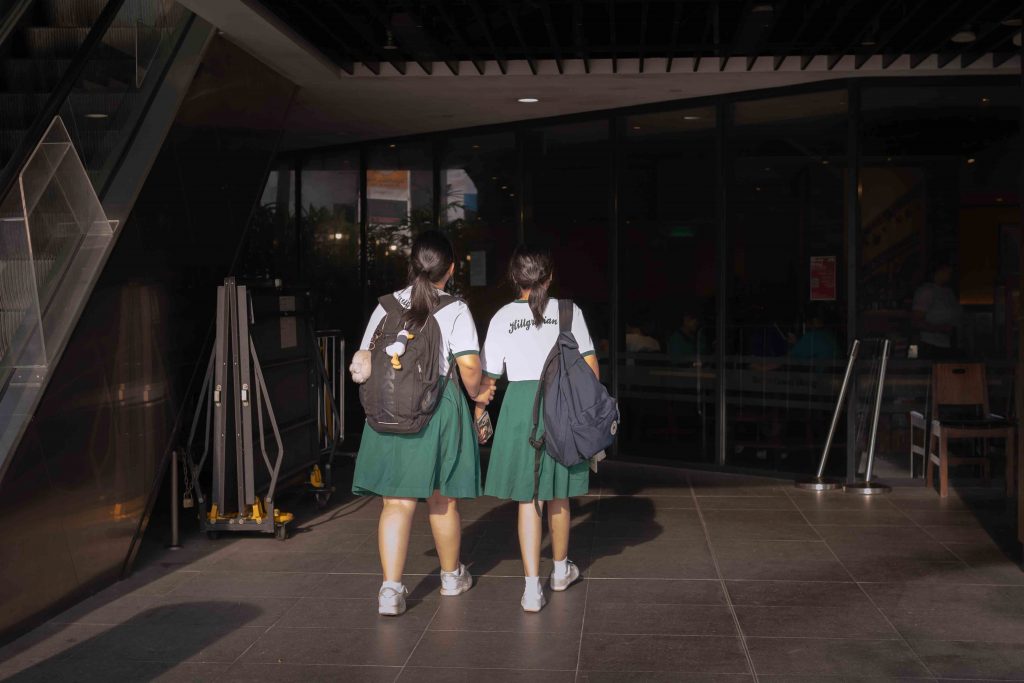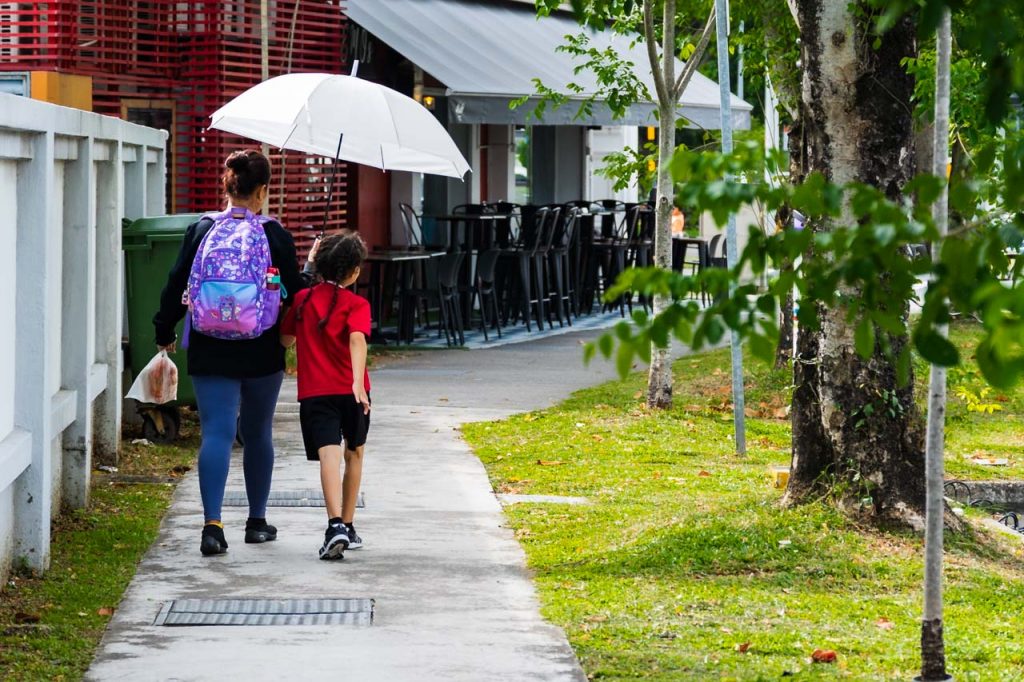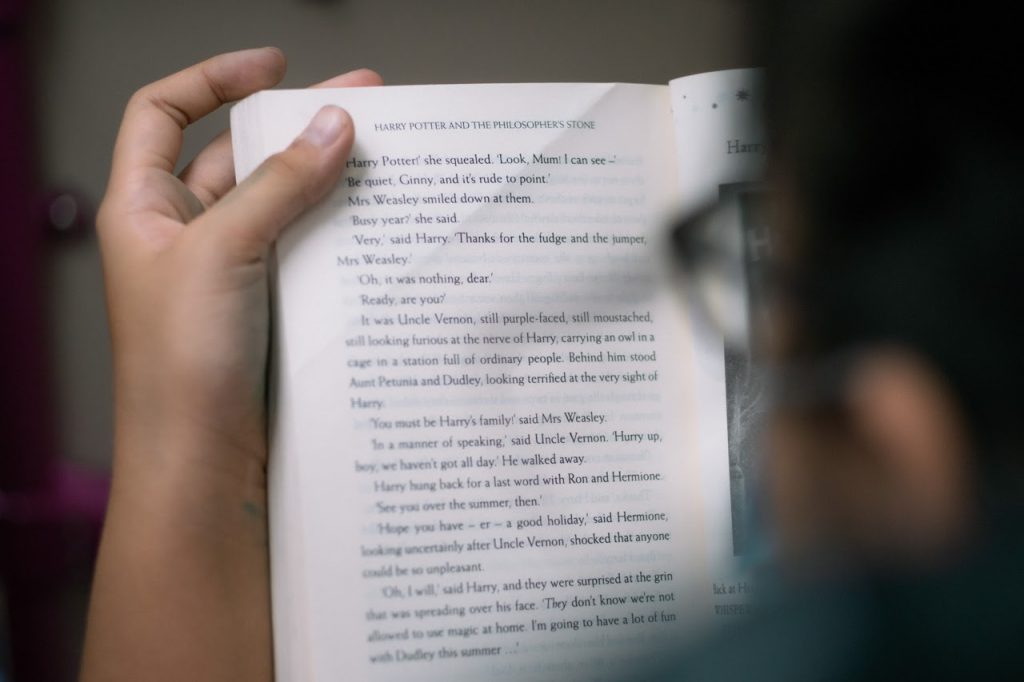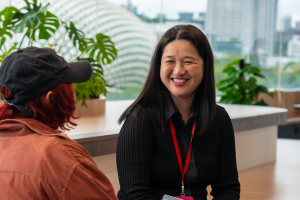Top image: Marc Clarence Beraquit / RICE File Photo
In an era where three-year-olds are going on exchange before university students can, one might think that the elite school fixation might peter out.
Hip millennial parents generally understand that there are more facets to a child than just the academic. They’re willing to take time and copious amounts of money to give their children extra-academic experiences, to kit them out socio-emotionally, mentally, and all the other facets of life that matter.
ADVERTISEMENT
Really, millennial parents should know better than to feed their child into the pressure cooker of our education system, having gone through it themselves. They’re best situated to know how stressful the system is.
But something keeps bringing them back because millennial parents don’t seem to have shaken off their parents’ love affairs with elite schools.
There isn’t a definitive list of criteria that a school has to satisfy to be deemed ‘elite’, but they’re typically all incredibly competitive to get into—and they’ve all got a reputation. Think Hwa Chong Institution, Raffles Institution, and Anglo-Chinese School.
What exactly is so irresistible about elite schools, and will millennials ever agree—for real this time—that ‘every school is a good school’?

The Enduring Allure of Elite Schools
There are a whole host of reasons parents might prefer elite schools over their less-prestigious, ‘neighbourhood’ counterparts.
Elite schools are often associated with better outcomes—both academic and otherwise—even if that may not be necessarily true.
A 2016 report published by the Singapore Children’s Society found that students across primary and secondary schools felt that students from elite schools were of higher social status than students from non-elite schools. On the academic side, parents of elite school students also had higher levels of confidence that their children would be able to attain a university degree than other parents.
It makes sense why a millennial parent may want to send their child to an elite school. If it means tentative success in all aspects of life, then why not? Even if it means moving nearer to the school or burning hours of their time volunteering, it’s all worth it if they can get their kids into a better school, parents say.
There are some, however, that are bucking the trend. When it came time for 41-year-old Chitra Pubalan to send her daughter to primary school, she chose to send the child to Woodlands Primary School, even as the spectre of an elite school hung over her head.
Ultimately, it was the school’s proximity to her home and Woodlands Primary’s integration of play into their curriculum that won her over, she says. Had her daughter attended her alma mater Raffles Girls’ School (RGS), she would have had to travel “an hour or two” every day.

“I think it’s more important that she comes home and she has time to enjoy her childhood.”
ADVERTISEMENT
Chitra’s reasoning is sound. Still, there are moments of self-doubt.
“When I hear my friends saying that they’re sending their children to schools like St Nicholas and Methodist Girls’ School, I thought: ‘Are we doing our kid a disservice?'”
What’s In a Name?
For Jacklyn*, the 35-year-old mother of a Primary Four boy, the pressure to send her child for high-flying opportunities started when her son was just three.
“I don’t really think millennial parents are different [from their predecessors],” she says. “Things have just become more complicated now with Direct School Admission and the changes to subject-based banding.”
There have been changes to form, but perhaps not function. Students are still being sorted, even as the Ministry Of Education (MOE) tries scrubbing away labels like ‘Express’ and ‘Normal (academic)’.
The reality is that as long as students are stratified in any way, people will find a way to rank them.
Jacklyn, whose son attends a well-regarded primary school, says: “MOE doesn’t publish school rankings, but from [online] forums like KiasuParents and talking amongst ourselves, we figure out what the best schools are.”
Explainer pieces inevitably end up saying things like “G1 will roughly correspond to today’s N(T) standard, G2 to N(A) standard, and G3 to Express standard”, which, if you think about it, partially defeats the purpose of the exercise.

“Even if you change the labels from ‘Express, N(A), and N(T)’ to ‘G1, G2, and G3’, it doesn’t change anything,” Elin Chua, a 50-year-old mother of two, says. “Everything is the same.”
Clearly, it’s not the names that are the problem—we could start calling Hwa Chong Institution ‘School H’ tomorrow, and parents would still sell their kidneys for their children’s chance to attend.
Then and Now
Still, there are some parents who are realising that even if schools don’t top KiasuParent’s rankings, they can still be good.
Katharine Ho, a 36-year-old mother of one, is cognisant of how different things are from when she was a child.
For one, Singapore was in its vying-to-be-a-biological-sciences-hub phase about 20 or so years ago. Science subjects were being pushed as the be-all and end-all, compared to today, where choosing to study the humanities no longer comes with its own laugh track.
Back then, schools and parents alike emphasised subjects like math and science. When Katharine, who was naturally more inclined to the humanities, didn’t do well in science, it directly affected her self-esteem. As such, her idea of a good school is one where her son doesn’t have to feel this way.
“It’s very clichéd, but at least he would not be made to feel like he’s not good enough if he is not good at maths or sciences.”
Household dynamics are also different now. Over 70 percent of millennial-aged couples are dual-career couples—that number will probably climb again come the next census. This means that millennial parents aren’t home with their children as much as their parents were.
Consequently, they want to make sure that their kids are taken care of in their absence. That’s led to some parents looking past perceived academic prestige and concerning themselves more with the standard of hands-on care their children receive in school.

In Elin’s case, she received this reassurance straight from the source.
Both of her children attended the prestigious primary school that she attended. When her son received his PSLE results, though, his options for an elite secondary school were closed off. To Elin, however, it was a blessing in disguise—she didn’t feel that her son’s primary school had really helped nurture him.
“We visited a neighbourhood school—Bukit Merah Secondary School—after receiving his PSLE results and met one of their teachers,” Elin says.
“[The teacher] was so proud of the work they’d accomplished. Then, we met a receptionist who talked about how caring the teachers were and how they’d been featured in the news for the care they showed their students—that sealed the deal for us.”
Elin’s family members weren’t as impressed. She says her brother was ‘puzzled’ at her son attending a neighbourhood school, especially since Elin herself had attended prestigious elite schools.
“But my son was so happy,” Elin affirms, “so [my family] didn’t say much after that.”
Had her son attended an elite school, Eiln says, he may not have been paid enough attention. The school he ended up attending took care of him and nurtured him well.
As far as she’s concerned, that beats out academic prestige any day of the week.
Perennial Parental Anxiety
Katharine shares a recent parent-teacher meeting she attended, where her son’s teacher informed her that he “wasn’t sitting still” and that his “pencil grip” had something to be desired.
If you think about it, there are normal things for a three-year-old to be struggling with. Still, Katharine says her immediate reaction was to wonder if she was doing something wrong.
“I had to take a step back and think: ‘Wait a minute, he’s three years old.'”
“I know that kids take time to develop,” Katharine says. “But I can’t help but feel anxious when his teacher says he isn’t very good at a specific thing.”
When asked what it will take for Singaporeans to lose their fascination with elite schools, though, Katharine doesn’t have a clear-cut answer. Maybe none of us do.
“I’m not sure if the current system is a good system,” she says. “But I’m also not sure if there’s a better one. I think a lot of it comes down to the parents’ attitudes and their ability to tell their child: ‘If you’re not academically gifted, then that’s okay’.”

She’s in favour of thinking about academic success differently: “Instead of looking at the aggregate score, we can look at what individual subjects our kids are excelling at and go from there.”
More or less, it’s what MOE’s latest round of reforms to the subject-based banding system are attempting. Whether it’ll stick, though, is to be seen.
Because at the end of the day, prying Singaporeans from the clutches of elite school obsession will mean having to ensure equality of access to opportunities; and that’s a tall order. It’ll take time to convince parents that opportunities for their children can exist in any school, even if people like Elin are already certain of the fact.
On Chitra’s end, she’s decided to curtail further conversation on the topic of elite schools. After conversations with the people around her, she’s realised that ruminating endlessly on the subject of top schools has brought her nothing but negativity.
It doesn’t help her own mood, and she says her daughters can pick up on the bad vibe, too.
“When you start comparing yourself with the parents around you, you’ll spiral into self-doubt,” she says.
“It’s never-ending. Your children will end up feeling that they have to outdo everyone around them. That’s not the life I want for my daughter.”
One Small Step For Tiger Mums
“I think it’s always at the back of my mind: that it would be nice if my daughters went to the same school and had the same experience as me, because it was lovely,” Chitra, an RGS alumna, says.
“But it’s also my job to respect them as individuals—if they don’t want to, then it’s their decision.”
As with all things, being less intense about academics, let alone elite schools, will take time. None of the parents seem to think that grades will ever go anywhere, or stop being important, but what they’re trying to change is how they interpret their children’s grades.
In other words, MOE can only do so much. It’s unreasonable to expect top-down directives to be able to vanquish our pressure-cooker culture. Parents have to do some of the legwork to meet MOE halfway and to make sure we foster an environment that’s good for our children.
The reality is that some schools are better than others. It’s really about what’s good for your kid. Parents also have to realise that ‘good’ and ‘elite’ are not synonymous.
“Of course results matter,” Katharine says. “But at the end of the day, not everyone will be a top scorer. I want an environment where, if my son isn’t a perfect top scorer—and he probably won’t be since there can only be a few top scorers in every batch—I want him to feel like he matters more as a person than his results.”
“And if he is a top scorer,” Katharine continues, “then I still want him to know that results don’t matter as much as the person that you are.”
Even Elin, who confesses to being a recalcitrant tiger mum, encourages other tiger mums to retract their claws.
Or, if they’re not keen on being less intense, to at least shift their focus to something other than pure academics.
“Be a tiger,” she says, “But in a different way. Academics aren’t as important now, so be a different tiger—a tiger for your children’s passion and purpose.”
*Name has been changed for privacy





